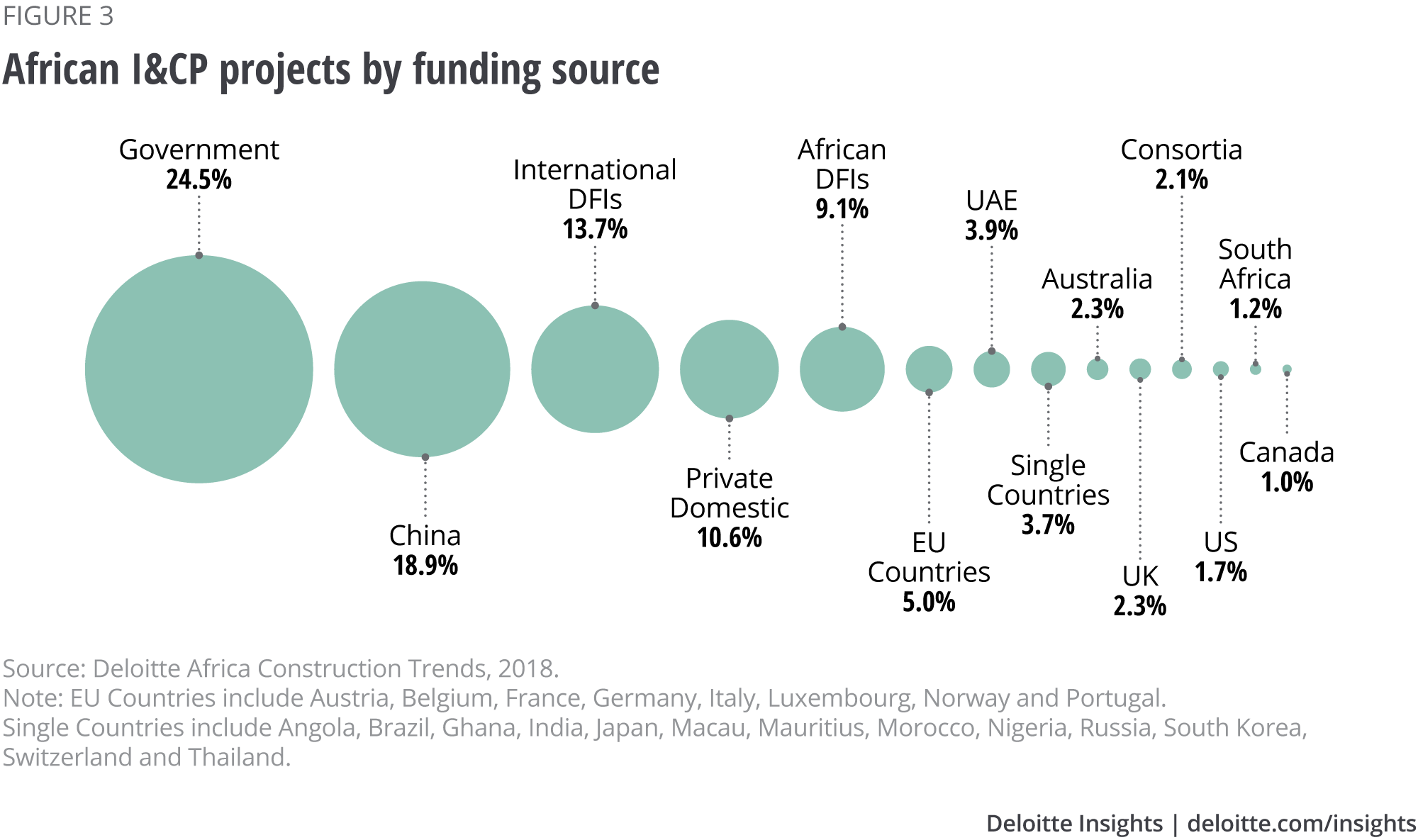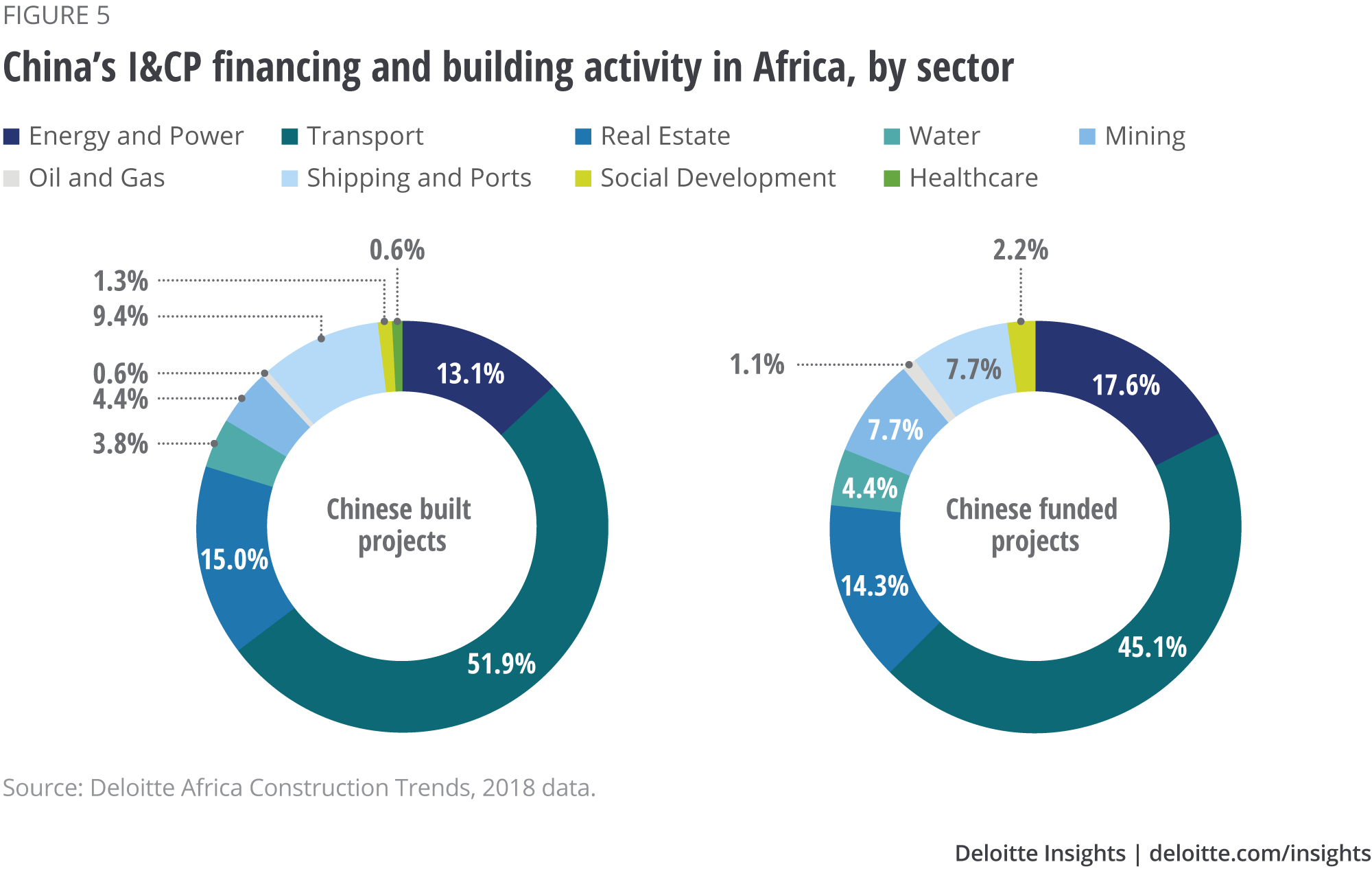Abstract
China is one of the top three economies in the world. Its rapid growth in the past few decades has solidified its position as a powerful nation that has both economic and military influence. China’s engagement in Africa encompasses investment, aid, and trade, and it has resulted in economic growth, improved foreign relations, and the development of new infrastructure. China has invested billions of dollars in various sectors including energy, manufacturing, technology, and transportation.
The aid offered and the investments made are beneficial because the Asian nation gets access to natural resources, a market for consumer goods, and political legitimacy. Chinese and American engagement in Africa is for different reasons. However, critics have argued that both countries are competing for supremacy with regard to greater access to natural resources and political influence.
Introduction
China’s growing interested and investment in the continent of Africa has elicited mixed reactions among developed countries such as Germany and the United States of America. The Asian nation has successfully applied its development model at home to reduce poverty and grow its economic status to one of the top three in the world. The success of this model has prompted its application in developing countries.
At the beginning of the millennium, China’s investment in Africa was almost non-existent. However, it has now grown to billions of dollars in economic development grants and loans. This engagement is primarily based on promoting peace, enhancing security, and eradicating poverty. Investment in Africa offers China an opportunity to explore African markets, expand its political influence, and get access to natural resources.
Brief History
The history between China and Africa can be traced back to the 1950s during the implementation of the Mao policy. The Bandung phase was characterized by the formation of partnerships with developing nations, some of which were African. Currently, China is focused on economic development and the eradication of poverty in the continent (Abdulai, 2017). The International Poverty Reduction Center in China (IPRCC) and the Global Poverty Reduction & Inclusive Global Portal (GPIG) are two examples of channels through which China is implementing some of its foreign policy plans in Africa. Investments to bolster security, develop economies, and eliminate poverty are some of the inclusions of the engagement strategy in the African content (Pham, Bello, & Barry, 2018).
Benefits to China
China benefits greatly by giving aid and investing in Africa. One of the key parts of this engagement is access to natural resources. Many foreign countries that invest in Africa exchange the provision of infrastructure for access to natural resources and political support (Abdulai, 2017). One of the benefits involves the expansion of Chinese companies in various sectors that include construction and manufacturing. China is famous for its advanced technological prowess in the development of infrastructure. Many African countries are hiring their contractors to develop infrastructure in areas that include telecommunication, utilities, agriculture, and transportation (Bodomo, 2017). In that regard, China is getting access to African labor markets.
China’s rapidly growing economy needs sufficient raw materials to fuel its manufacturing sector. In that regard, it hopes to get access to Africa’s raw materials (particularly oil and minerals) by offering aid and investing in various sectors. The main areas of focus are oil and mining (Bodomo, 2017). However, investments spread across all economic sectors. Studies show that China is the largest consumer of minerals such as steel, copper, platinum, and coal in the world (Abdulai, 2017).
Economic estimations show that the nation will be the largest oil importer in the world by 2020 (Donou-Adonsou & Lim, 2018). It is expected to surpass the United States. This move is aimed at guaranteeing a future supply that will be sufficient for its high population and growing economy. In that regard, China is investing heavily in several countries: Sudan, Nigeria, and Angola (Sow, 2018). Therefore, partnering with African countries will enhance the sustainability of the manufacturing industry.
China gets access to African markets in exchange for aid and foreign investment. In 2009, the Asian nation surpassed the United States as Africa’s largest trading partner (Donou-Adonsou & Lim, 2018). The implication of this milestone is greater access to markets through the exportation of various products: electronics, machinery, and textiles (Pham et al., 2018). Moreover, increased importation of oil, cotton, crude oil, and minerals provides raw materials for its industries.
South Africa, Nigeria, and Angola have vast natural resources. Therefore, they are the major trading partners. African markets will facilitate China’s initiative to restructure its economy in an effort to shift from labor-intensive industries (Hanauer & Morris, 2014). Another benefit is political legitimacy. China offers aid and invests in Africa as a way of raising its international influence (Zhang & Corrie, 2018). Many African governments have supported Beijing’s “One China” policy in exchange for aid and investment.
Impact of China’s Aid and Investment
China invests heavily in Africa by offering aid and loans for economic development projects. As mentioned earlier, they target key areas that include poverty reduction, peace promotion, and economic development (Hanauer & Morris, 2014). China is the largest financier of infrastructure development in Africa (see fig 1). Several African countries have benefited significantly from this foreign investment. The development of infrastructure, the promotion of agriculture, and the deployment of security teams to warring countries are some of the benefits of this engagement (Edinger & Labuschagne, 2019).
Aid is offered without the attachment of conditions as is the case with Western countries that use financial grants to further their political agenda. As China continues to expand into a global economy, the use of associations such as ASEAN and BRIC to form favorable relations with developing countries is important (Hanauer & Morris, 2014). The involvement of Chinese companies in the development of infrastructure has contributed immensely to improving Africa’s economic development environment and attracting foreign investment.

One of the impacts of investment in Africa is the reduction of poverty through the funding of economic development projects and the development of new infrastructure. In that regard, several countries have benefited greatly. The Export-Import Bank of China has invested in several mega projects in Djibouti that include a multipurpose port, a water pipeline project from Ethiopia, a railway line, and an international airport.
The bank has invested over US$1 billion in these projects (Edinger & Labuschagne, 2019). The construction of shopping malls and roads in various countries will stimulate the local economies by creating jobs and attracting foreign investment. In Kenya, China has funded the construction of the Lamu port, oil pipelines, an oil refinery, resort cities, three airports, and the Standard Gauge Railway (SGR) (Jonker & Robinson, 2018).
One of the major economic challenges in sub-Saharan Africa is energy shortage that slows down economic growth and negatively affects the success of poverty-reduction initiatives. The power sector in many countries has grown tremendously in the past decade because China has been investing heavily (see fig. 2). For instance, between 2010 and 2015, more than 635 million people in Africa benefited from China’s $13 billion investment in the energy sector (Sow, 2018).

The Asian country has been monumental in the expansion of electricity systems across Africa through its immense investments in the energy and power sectors (see fig. 2). This has improved the living standards of innumerable people and created many job opportunities. The transformative effect of China’s engagement in Africa is undeniable. The modernization of infrastructure in sectors that include transport, energy, and telecommunications has played a key role in the economic growth of various countries (Jonker & Robinson, 2018). The active participation of Chinese companies in many sectors including manufacturing and construction is beneficial to African countries.
In the past twenty years, relations between China and Africa have improved tremendously, primarily due to China’s rapid economic growth. Many African countries have shifted from receiving aid from western countries to China because of the requirement to fulfill certain political conditions before the money is released (Lee, 2017). China has become popular because it does not interfere with the political matters of the nations it partners with. As a result, it has become Africa’s largest trade partner. Trade relations have enhanced the economic growth of many nations and lowered the level of poverty in the continent (Lee, 2017). As China continues to invest in Africa, many economies are projected to grow due to the emergence of new opportunities, the creation of jobs, and infrastructure development.
China versus the United States
Many critics have argued that China and the US are competing for the control of Africa. However, the interests of both nations reveal otherwise. China’s major focus is the extraction of natural resources, manufacturing, and the development of infrastructure (Zhang & Corrie, 2018). On the contrary, the US is concerned with the development of high-technology trade and services, as well as the promotion of policies that enhance democracy, governance, and human development (Hanauer & Morris, 2014). China utilizes a “no strings attached approach” while the US utilizes a “strings attached” approach.
Both nations are competing for influence and access to resources. However, they should cooperate in various ways for the effective attainment of their interests. They are not strategic rivals and could collaborate by implementing policies that put the welfare of Africans first. For example, they can send their military troops to warring countries, increase aid in support of agricultural programs, and invest in diverse sectors (Hanauer & Morris, 2014). Moreover, they can offer training and development opportunities in the areas of technology and manufacturing.
Conclusion
In the past two decades, China’s engagement in Africa has grown so rapidly that the Asian nation has surpassed the US as Africa’s biggest trade partner. Its major interests are access to natural resources, the establishment of political legitimacy, poverty alleviation, and economic growth through infrastructure development. China’s diverse investments and foreign aid have improved the living standards of many people, promoted economic development, and put several African economies on the global stage.
Many countries have benefited in various ways. On the other hand, China has benefited greatly because it has access to natural resources and African markets for its goods. Access to resources such as oil and gas, steel, copper, and coal is important because it enhances the sustainability of China’s economy that is growing rapidly. China and the US have been described as rivals because of their competition for the control of Africa. However, their interests and approaches are different. Therefore, they should consider cooperating in order to benefit African countries.
References
Abdulai, D. (2017). Chinese investment in Africa: How African countries can position themselves to benefit from China’s foray into Africa. New York, NY: Routledge.
Bodomo, A. (2017). The globalization of foreign investment in Africa: The role of Europe, China, and India. West Yorkshire, England: Emerald Publishing Limited.
Donou-Adonsou, F., & Lim, S. (2018). On the importance of Chinese investment in Africa. Review of Development Finance, 8(1), 63-73.
Edinger, H., & Labuschagne, J-P. (2019). China’s role in African infrastructure and capital projects. Deloitte Insights. Web.
Hanauer, L., & Morris, L. J. (2014). Chinese engagement in Africa: Drivers, reactions, and implications for U.S. policy. New York, NY: Rand Corporation.
Jonker, K., & Robinson, B. (2018). China’s Impact on the African renaissance: The baobab grows. New York, Ny: Palgrave Macmillan.
Lee, C. K. (2017). The specter of global China: Politics, labor, and foreign investment in Africa. Chicago, IL: The University of Chicago Press.
Pham, J. P., Bello, A. S., & Barry, B-S. (2018). Chinese aid an investment are good for Africa. Web.
Sow, M. (2018). Figures of the week: Chinese investment in Africa. Brookings. Web.
Zhang, X., & Corrie, B. P. (2018). Investing in China and Chinese investment abroad. New York, NY: Springer.